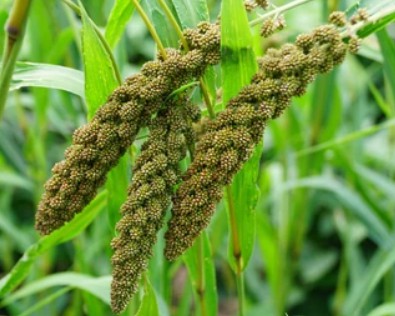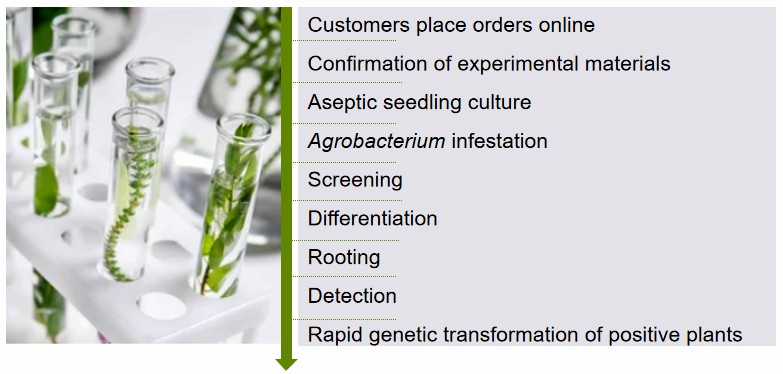Setaria italica is an annual cash crop with physiological characteristics of drought, barren and salinity tolerance, high adaptability, and stable yield. Moreover, Setaria italica is a diploid self-pollinated crop with a small genome, a short growth cycle (50-80 d), and small plants, which makes it an excellent monocotyledonous model plant. With the development of transgenic technology, improving crop yield and quality through genetic transformation and other techniques has become a widely used approach. However, compared with significant crops such as Oryza sativa and Zea mays, the functional gene research of Setaria italica has lagged, and one of the main reasons for this is the slow development of Setaria italica's genetic transformation system. Therefore, it is essential to establish and further optimize the Setaria italica genetic transformation system.
Lifeasible is committed to plant genetic transformation research; we use Setaria italica stem tip as the receptor material, use an Agrobacterium-mediated method to infest the stem tip, and can effectively obtain positive plants. In the field of plant genetic transformation, we aim to establish a set of highly efficient and stable genetic transformation systems by continuously optimizing the conditions of infestation and detection methods to lay the foundation for accelerating the process of Setaria italica transgenic breeding.

There are many methods for genetic transformation of Setaria italica, including the gene gun method, Agrobacterium-mediated method, PEG-mediated method, ovary injection method and pollen tube passage method. The Agrobacterium-mediated and gene gun methods are the most used methods in Setaria italica genetic transformation. In Setaria italica genetic transformation, the gene gun method can directly introduce exogenous genes into the recipient to transform various tissues and organs. Still, the disadvantages are that the transformation rate is not high, and it is easy to lead to gene silencing and high cost. The disadvantages of Agrobacterium-mediated transformation are low transformation rate, easy gene silencing, and high cost. Agrobacterium-mediated transformation can express the exogenous genes stably and has simple operation and low cost. Usually, we choose the Agrobacterium transformation method more often, in addition to Agrobacterium-mediated Setaria italica genetic transformation receptor materials, including guaiac tissue, young spike, young embryo and mature embryo, etc. However, these receptor materials need to be cultured, and it takes longer to obtain the receptor and has a strong genotype dependence. In addition, we have also utilized the stem tip growth point as the receptor for genetic transformation, which is not limited by the season and can greatly shorten the breeding time.
We use the healing tissues induced by mature embryos of Setaria italica as the recipient material, which are infiltrated with Agrobacterium carrying the target gene vectors, inserted T-DNA into the genome, screened for antibiotics corresponding to resistance, and further differentiated and regenerated into transgenic strains.
| Materials available to customers | Sample requirements |
| Customers can provide the constructed Setaria italica transformation vectors directly, or they can entrust us with the vector construction service. |
Customers can provide bacterial liquid or bacterial plate. The bacterial liquid should be within 1 year, preserved with glycerol. Plates should be activated within 1 week. It is recommended that customers provide plasmids, E. coli and Agrobacterium are easily contaminated in the mail. |
| Customers are required to provide ≥1000 mature seeds within one year. |

Lifeasible has rich experience in providing services in plant genetic transformation research. Relying on our advanced technology platform and professional research team, we aim to accelerate the process of plant genetic transformation research together with researchers. Our Setaria italica transformation service is of great significance to help researchers understand the growth and development of Setaria italica and improve the quality of crops. If you are interested in us, please feel free to contact us.